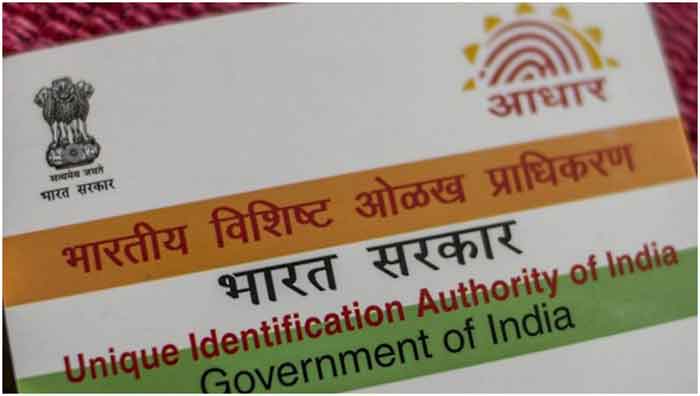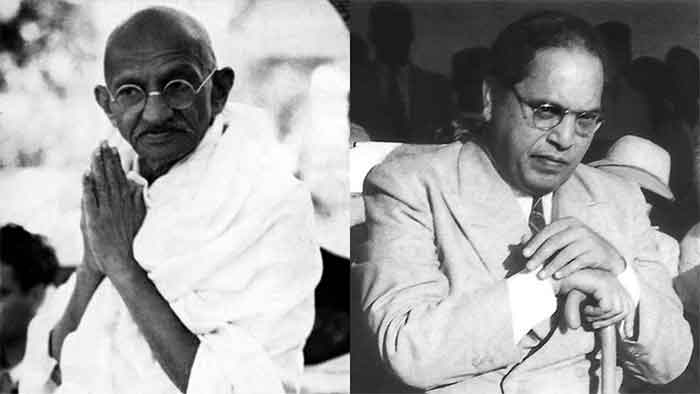Proposed electoral reforms not only evokes a procedural and constitutional debate, but has deeper implications for India’s engagement on the idea of public trust

File image of an Aadhaar card | Photo: Dhiraj Singh | Bloomberg
A central procedural aspect of any democratic nation is manifested in its legislative elections. The Election Laws (Amendment) Bill, 2021 passed by both Houses of the Indian Parliament in December 2021 raised apprehensions on account of its constitutionality and related administrative and ethical concerns. It proposed four broad amendments to the present Representation of the People Act, 1950 and the Representation of the People Act, 1951. Let us consider each separately. First, linking of the electoral roll data with Aadhaar. Second, increase in the number of qualifying dates in a year for enrolment in electoral rolls. Third, expanding the nature of purpose for which state governments may requisition premises for elections and allied activities. Finally, it aims to provide a gender-neutral terminology (spouse) to address those deemed to be referred as ‘ordinarily resident’ in a constituency. A majority of the problematic aspects of the above amendments raised so far largely pertains to implications of the first provision. According to the proposed amendment, the electoral registration officer “may require” a person to furnish their Aadhaar number in order to establish their identity. This is equally applicable for the already registered voters, who may be required to furnish their Aadhaar for authentication of corresponding entries in the electoral rolls. The Bill has been stated as yet another effort to further strengthen electoral reforms in India through its attempt to de-register duplicate voters from more than one constituency. Though the amendment rules out possibility of denial of inclusion or deletion of existing names from electoral rolls on failure to prescribe by the changed law, the Bill remains undefined on what may constitute a ‘sufficient cause’ by the required authority to demand the aforesaid document.
The Question of Aadhaar
The Unique Identification Authority of India (UIDAI) is the centrally designated authority, mandated to create, maintain and secure the Aadhaar database. Its operative function is to collect demographic and biometric information and issue a 12-digit unique number to each resident of the country. It is important to note, that enrolments under Aadhaar does not confer any right to Indian citizenship. Rather, it aims to directly reach individual residents of the country to facilitate delivery of various subsidies, benefits and services through one’s Aadhaar number. It can be clearly interpreted therefore, that Aadhaar authentication seems necessary for implementing agencies to eliminate duplication of beneficiaries, and thereby ensure targeted delivery of entitlements to only those intended by relevant government policies.
India’s ambitious project of extending a uniform, government-controlled identification system to its entire population through a verified process, has constantly been subjected to opposition, suspicion and resentment. Nonetheless, there exists real concerns about the consequences of its implementation. The Indian experiment to grant a legitimate recognition to individuals, and thereby establish their ‘verified identity’, serves as a potential category in itself to determine a person’s eligibility for state-led entitlements. However, this has witnessed multiple incidents of errors and exclusions. To illustrate, the inefficiency experienced in MGNREGA wage payments, even during the uncertainties caused by Covid-19 crisis, was also an outcome of Aadhaar seeding with MGNREGA database. This implied a further disastrous situation for the most vulnerable and marginalised sections, including SC/ST and women, especially those belonging to low-income category, for whom MGNREGA remunerations become the only source of their livelihoods.
While classification of identities around gender or sexuality, demographic status, income, caste or religious beliefs, are recognised expressions of biological or social affiliations, they also help channelise access to individual rights and opportunities. This is not only to facilitate efficient delivery of basic services, but becomes more important to accommodate diversity and inclusion, despite intersectional patterns of unequal populations, through targeted provision of crucial welfare policies. Therefore, what makes a case to promote identification is its focus on “inclusion” that aims to empower human interests and preserve civil liberties. This may be examined in context of the Sustainable Development Goals, or more specifically SDG 16.9.1 which seeks to make “legal identity for all” a global priority, under its overarching Goal 16 that promotes creation and maintenance of a just, peaceful and inclusive society for all.
Towards a Way Forward
In order to function in a social system, governments must act as institutions of public trust. The use or abuse of identification technologies, including biometric-based identity cards, on their possibility of citizen surveillance and database profiling, pose deeper questions about citizens’ trust in public institutions in a democratic system. Identification then, should be a “risk-reducing strategy” according to Jim Harper, an eminent expert on policies of identification technology and government transparency. Evidently, the OECD monitors people’s trust through its country-wise survey to formulate how the level of trust differs among social groups and various institutions within and across its member countries. A reasoned citizenry, informed policy decisions and political determination are together necessary to absorb, assimilate and build consensus towards the vision of enhanced public trust in India. It is indeed time to revisit the idea of citizen participation to evaluate governments and secure greater social support and cohesion to mitigate challenges of complex policy-driven reforms.
Akanksha is currently a Research Scholar at the Department of Political Science, University of Delhi.












































